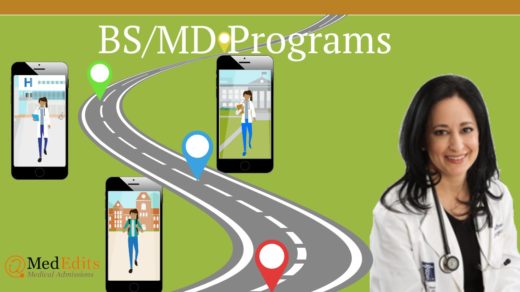8 things that being a Medical Student with ADHD has taught ME!
By: Eric Mubang

Adapt to the situation:
For me personally, I always struggled with absorbing information quickly. I would have to re- read things multiple times just to have a chance to understand the basic underlying concept. While this worked in my undergraduate studies, I quickly found out that this strategy was ineffective. While I initially was confused as to how to properly go about how I would get better at being an efficient studier given my learning disability, eventually I just took a deep breath and started implementing systems and investing in better study tools such as question banks. Ones that really helped me were True Learn and Board Vitals.
Test and refine:
It is hard to know what strategies are working. What I learned to do was to evaluate what my results on tests were anytime I had employed a new strategy.
Anytime I was successful, I would keep a chart of all of the behaviors that went into achieving the desired result. I probably studied this sheet just as meticulously as I studied the actual medical school material. I had to really understand what patterns were causing me to perform well and what patterns of behavior were causing me to underperform.
In the beginning of medical school I always chalked up any bad results on tests and quizzes to just not trying hard enough. Eventually I learned to critically evaluate what my process of studying was and make necessary adjustments. For me, these adjustments included using question based learning.
Accept that you are different:
It is easy to go with what everyone else is doing. For me personally all lot of my friends would always have these study sessions in which they would quiz each other on the information. For me this was never helpful because it took me a very long time to learn the information on my own the first time, so anytime it came to one of these group quiz sessions I was never prepared and never actually found them helpful
Eventually I met with the school and was able to get a 4th year medical student to meet with me for one on one private tutoring. During our sessions I her quiz me on the specific topics that I needed to work on. This was a better option for me because it was more tailored to my own individual needs.
Always have a plan:
One of the things I really struggled with was sticking to a written plan and executing it. Often times I would begin studying and end up going down a rabbit whole of various articles and practice questions. While this may sound productive It actually ended up being counterproductive because I was splitting my attention in several different areas.
Don’t overwhelm yourself with resources:
While this may not seem like a huge issue it actually turned out to be a pretty big problem for me.
Use the 80/20 principle:
The biggest mistake that I made was that I would always try to do things the longest way possible. For example, rather then read a brief review guide for a quiz I would instead read an entire chapter. As time went on I quickly realized that I needed to expedite my studying and make myself become more efficient.
Compartmentalize and set deadlines:
It wasn’t until I entered medical School that I realized that time is the number one commodity. In undergrad, Because I had ADHD I often spent entire days just hyper focusing on one topic. This was also partly because I was a very slow reader and struggled with quickly getting thorough dense text. In medical school I learned that I had to allocate a start time and an end time for every activity. Not doing this made me spend way too much time on one single topic and neglect all of the other subjects that I had to go over.
You have to become resourceful:
Arguably my biggest error in my first year of medical school was that I was only relying on the class materials. However you have to know yourself very well and understand that you will need to take it upon yourself to find the right study materials for you. This might mean budgeting some extra money or taking out some additional loans to purchase a question bank or a particular application.
For me I knew that the materials that the school provided me with were just not sufficient to do well on all of the examinations, so I made the objective decision to purchase the True Learn Question Banks.
To save money on study products, check out our “Medical Student Discounts” page. 20% or more off your favorite education resources!

Eric Mubang is a second year medical student in the United States and the Author of Fitmedicwriter.com. On his blog he reviews study materials for pre-medical and medical students, discusses study hacks for those who have ADHD (like himself), and he also discusses the importance of physical fitness and the impact it has had on his life.
Eric is Passionate about running and weight lifting, and his clinical interest are surgery and radiology.
Have an exciting medical story to tell or some advice to give? A unique background or path into medicine? Want to share your own post or experience with our followers?
#LifeofaMedStudent welcomes posts from our readers! Have your VOICE heard to all those in medical training! Contribute to #LifeofaMedStudent!
Featured Sponsor:
MedSchoolCoach:
MedSchoolCoach was founded in 2007 with a simple premise: physicians should help future physicians. Since that time, we’ve helped more than 12,000 students get into and through medical school.
Our advisors are actual physicians with admissions committee experience. Our tutors go through the most rigorous selection process in the industry. Our company is focused just on one thing: build future physicians.








